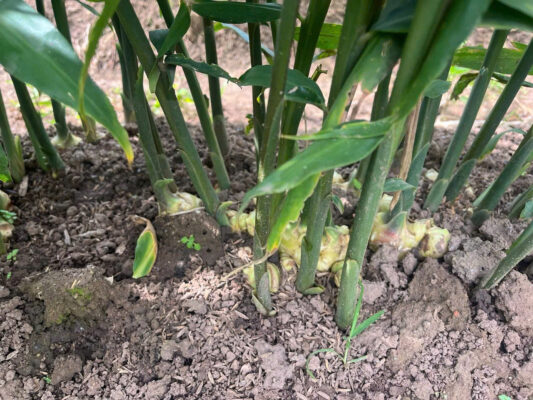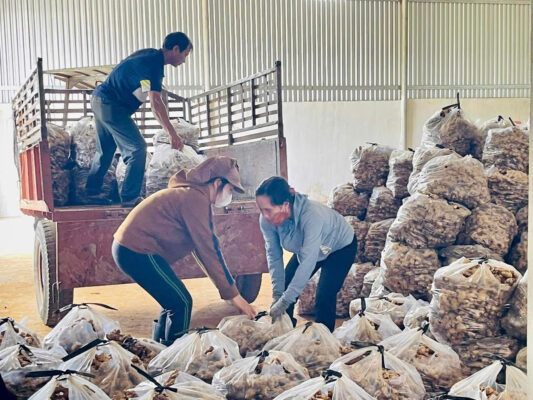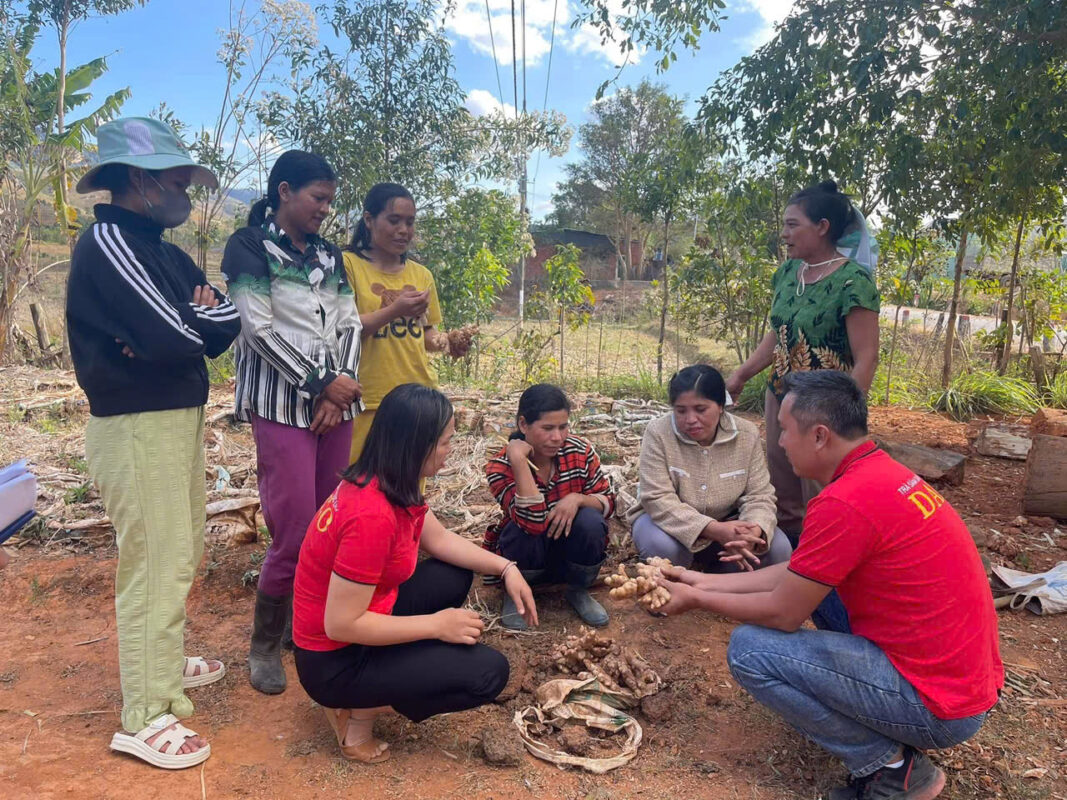Fresh ginger is more than just a nutritious crop, it’s a key to unlocking sustainable economic development in rural areas, especially in ethnic minority regions. With rising global demand for clean spices and herbal ingredients, building export-standard fresh ginger supply zones has become a central strategy for many social impact enterprises in Vietnam.
Fresh Ginger – Dual Economic Value
Ginger (Zingiber officinale) has long been prized as both a culinary spice and a medicinal herb, deeply rooted in traditional medicine and East Asian cuisine. As the world shifts toward healthier lifestyles, products made from fresh ginger such as extracts, teas, dried ginger, and essential oils, are increasingly popular in major markets like South Korea, Japan, the EU, and the USA.
Because ginger adapts easily to different environments, grows quickly, and enjoys steady demand, it’s a strategic crop for mountain communities. Cultivating ginger can significantly boost farmers’ incomes compared to traditional staples, allowing hillside and shifting-cultivation land to be used without expanding farmland and helps reduce deforestation and protect natural resources.
When processed into higher-value products, ginger holds huge potential in the global value chain, from functional foods and medicinal extracts to health and wellness goods. This added value is key to boosting exports and creating sustainable livelihoods.

International agricultural trade organizations report global ginger export value is growing steadily by 6–8% annually. With its favorable climate and soil, as well as year‑round production potential, Vietnam especially the Central Highlands and northern mountainous regions is well positioned to lead.
At DATO, we are gradually building properly managed, sustainable ginger-growing areas aligned with international standards. Our goal is not only to expand exports, but to foster a fair agricultural model, placing farmers at the center, and ensuring each ginger product embodies the value of nature, scientific practice, and shared community progress.
Sustainable Livelihoods for Ethnic Minority Communities
Over 70% of cultivated land in Đăk Tô is managed by ethnic minority households. Ginger farming there not only generates agricultural value but also contributes to poverty reduction, livelihood improvement, and the preservation of indigenous farming culture.

Instead of planting low-value quick crops or relying on forest extraction, local farmers are trained in safe, organic ginger farming from soil preparation and seed selection to biocompost fertilization, harvesting, and initial processing. DATO provides contract purchasing with stable prices, ensuring a reliable market and reducing risks for farmers.
Beyond income benefits, our programs build local capabilities especially among women’s cooperatives in ethnic communities, equipping them to master farming techniques, manage costs, engage in processing and packaging, and enhance product value.
Toward a Green, Sustainable Export Value Chain
To enter upscale markets, “green” and “sustainable” practices must be assured. This means strict control over pesticide residue, transparent farming methods, and clear traceability.
Businesses play a vital role in creating this value chain. At DATO, every step from raw ginger production to processing is digitized and closely monitored. Following harvest, fresh ginger is washed in high-capacity systems, stored in cold rooms, and packed to export standards, preserving freshness, active compounds, and shelf life.

Moreover, fresh ginger serves as a vital ingredient for high-end products like herbal teas, ginger-honey concentrates, and ginger powder, opening sustainable economic and branding opportunities.
Opportunities and Challenges Ahead
Despite its potential, building an export-grade fresh ginger chain faces challenges: climate change impacts, lack of processing and storage infrastructure, and technical barriers in demanding markets. Fragmented production in some regions also limits the ability to meet large orders.
However, with sound investment and seamless collaboration among businesses, local authorities, and development partners, fresh ginger can become a strategic crop for highland communities—delivering sustainable profits, protecting forests, preventing soil erosion, and reducing multidimensional poverty.
Conclusion
Ginger is more than a kitchen spice it’s a symbol of natural medicine, wellness, and sustainability. Promoting responsible production and export of fresh ginger creates not only business revenue, but also enduring community impact and preserves precious local knowledge.
Tracing the journey of a single ginger root from Ngọc Linh mountain in the Central Highlands to the dinner table of a Korean family, reveals the strength of a green agricultural value chain, where economic gain and social responsibility walk hand in hand.



